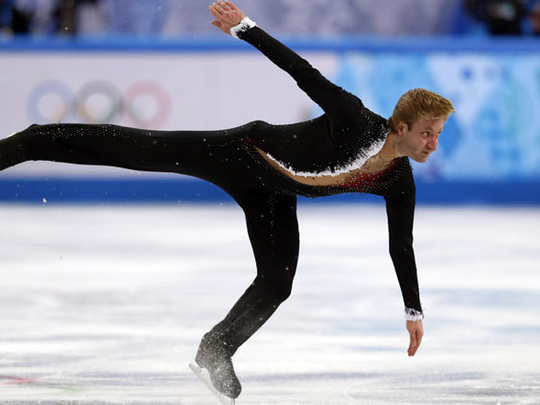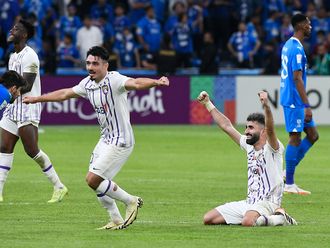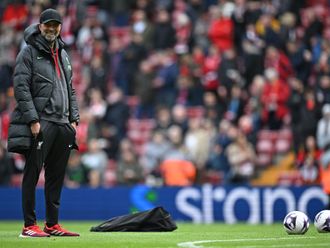
Sochi, Russia: Russian teenager Julia Lipnitskaia will be looking to follow the heroics of veteran teammate Yevgeny Plushenko when she takes to the ice in the figure skating team event at the Winter Olympics on Saturday.
Like Plushenko, 15-year-old Lipnitskaia will face a formidable Japanese rival when she goes up against two-time world champion Mao Asada, the Olympic silver medallist.
Russia lead the team event after Plushenko placed second behind Yuzuru Hanyu, 19, in the men’s short programme on Thursday, with world champions Tatiana Volosozhar and Maxim Trankov putting the hosts ahead in the pairs event.
This time the roles will be reversed, with Asada the seasoned veteran at 23 years up against rising star Lipnitskaia, who became the youngest woman to win the European championship last month.
Russia lead with 19 points with Canada second on 17 and China sitting two points behind. Asada will be bidding to lift Japan from their fourth spot.
Despite teen Hanyu’s flawless presentation in the men’s event, they have just 13 points after their inexperienced pairs duo, Narumi Takahashi and Ryuichi Kihara, placed just seventh in the 10-team field.
Lipnitskaia, who was born the year that Plushenko won the first of his five world and 10 European medals, has already competed at the Iceberg Skating Palace during Russian nationals in December.
She will not be attending Friday’s opening ceremony to focus on her job. “I’ll rest and comfortably watch it on television from home,” she said.
Her coach Eteri Tutberidze said the biggest challenge was learning how to deal with the huge pressure.
“We’ve been trying to shield her from everything,” she said. “Skating in the team event means an extra responsibility, because you’re not only skating for yourself, but for the other athletes, whole team, the country.
“This opportunity might come only once in a lifetime.”
Asada’s Japanese teammate Akiko Suzuki said she was also ready to help the team if needed in the free skate on Sunday.
“There has been no team event so far at the Olympic Winter Games, so these Games mean a lot to me,” said the 28-year-old national champion.
“Team Japan is very supportive and strong, and the audience’s support also helped [Thursday night].”
Volosozhar and Trankov will try and hold their lead from the short programme in the free skate final on Saturday night, with Russian ice dancers Ekaterina Bobrova and Dmitri Soloviev facing a tough task in the ice dance.
The short dance gets underway with world champions Meryl Davis and Charlie White of the United States and Olympic champions Tessa Virtue and Scott Moir of Canada the favourites ahead of Bobrova and Soloviev.
Canada lost ground after world champion Patrick Chan finished just third in the men’s short programme, with Meagan Duhamel and Eric Radford pulling them up to second after the pairs.
In the women’s event, Kaetlyn Osmond, eighth at last year’s worlds at home in Canada, faces a tough task in a field that also includes Italy’s former world champion Carolina Kostner.
The US are equal on 10 points with France and Germany.
Ashley Wagner will be looking to justify her controversial selection for the US despite finishing fourth at the nationals.
China should, however, drop from their current third position with Zhang Kexin, 18, who was just 23rd at last year’s worlds, competing in the women’s event and Huang Xintong and Zheng Xun, 12th at worlds, in the ice dance.
Sitting eighth, Italy will be counting on Kostner and European ice dance champions Anna Cappellini and Luca Lanotte to lift them.
World bronze medallists Nathalie Pechalat and Fabian Bourzat will look to keep France in the running in the ice dance with only the top five teams advancing to the free skating finals in all four disciplines.
Ukraine and Great Britain occupy the final two spots.











